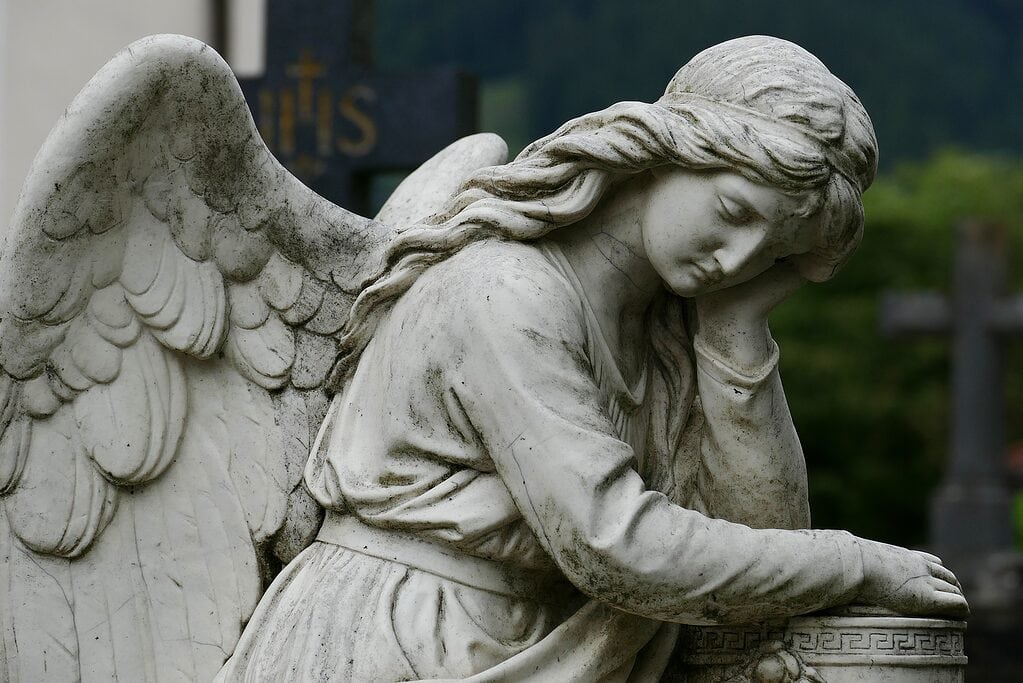As the new Elizabethan era draws to a close, the nation is adjusting to the loss of a globally revered monarch. The gentle demise of Queen Elizabeth II after a lifetime of service has touched the hearts of all but the most staunch Republicans.
In her wisdom, she described how ‘grief is the price we pay for love’. Indeed, the only way to avoid grief is to avoid love. Not a healthy strategy for a happy life. Many will still be grappling with their losses as the impact of covid wanes. Its consequences for those left behind are profound and far-reaching.
The way we grieve is influenced by culture, custom and religion. The Queen cut a lonely figure at the funeral of her much-loved husband during the height of the pandemic. Stoic and dignified, her tears were shed behind closed doors. Far cry from the joyful wakes of Irish custom or the Toraja people of Indonesia who keep the corpses of their loved ones in their homes for years.

How we grieve has been simplified into what’s described as the grief curve. Each of its five stages will be familiar to anyone who has suffered any form of loss in their life. However, grief is not a linear process. It loops around and comes back to bite us in different ways as we learn to live with it.
Denial
Table of Contents
The experience of grief has many facets. The loss of a job is distressing but nothing like the loss of a child. The initial shock of bereavement can be so overwhelming we protect ourselves in a state of denial. Confusion, fear and sometimes even elation can crowd the thoughts and is at the beginning of the curve.
This is often the state of mind of those dealing with bureaucracy and funeral arrangements, which leave little time for processing emotions. In our society, once the funeral is over, the bereaved are often expected to return quickly to a semblance of normal with little in the way of support or sympathy. Some find this easier than others.
Anger
At some point, as the numbness fades, reality kicks in and life seems really unfair. This uncompromising stage is when we can lose faith and rage against God, the universe and everything. Throughout life, anger is discouraged but it’s hard to control in the depths of grief. Repressing that fury when dealing with loss can slow the healing process and cause mental health issues. Anger helps us to start fighting for survival and turn our focus towards living.
Bargaining
Sufferers of Obsessive Compulsive Disorder know all about bargaining. Their repetitive rituals are often fuelled by a powerful belief that bad things happen if they don’t do things a certain way. This distorted thinking can temporarily torment the bereaved with ‘if only’ and ‘what if’ narratives. Atheists have been known to pray for miracles at this stage and guilt creates a toxic debrief about past events or behaviour despite the fact that all that could have been said and done has been said and done.
Depression
Experiencing loss inevitably leads to feeling helpless, hopeless and not in control of circumstances or life in general. Some people get ‘stuck’ with their depression while flipping between other stages of the grief curve, revisiting their sadness and pain, sitting with misery, withdrawing from life and losing all sense of purpose.
While grief is not regarded as a mental illness, there are elements of it which can develop into chronic problems which need treatment. In the early stages of loss, any intervention will ease but not cure the pain. Isolation and loneliness should be avoided at all costs. Suffering in solitary silence can be a death sentence for an elderly widow or a young soldier who has witnessed battle fatalities.
Acceptance
Many people feel guilty when they start to enjoy life again. It’s almost as if smiling or having fun is an insult to the memory of the loved one. So many memories of the end of life are traumatic and overwhelming. Recovery makes it possible to remember happier times and to reconnect with someone who was loved and is no longer around.
For example, parents have a profound influence on our lives and inform our beliefs, values and way of life. They still exist in our behaviour, and our children’s smiles and are part of an internal narrative when we make decisions in life or reach important milestones.
When we choose to step out from beneath the shadow of grief and loss depends on the relationship we had with the person or thing we have lost and our relationship with all that is living and breathing in the world around us.
Symptoms of Grief
- Crying – make time to let the tears flow in private or with those close to you
- Headaches and other aches and pains – rest and take painkillers
- Insomnia – catch up on sleep when you can and ask the GP for a short course of medication
- Questioning spiritual beliefs and purpose in life – seek answers from family, community or religious leaders according to your faith
- Feeling detached and isolated – the longer you leave it to get back out there, the harder it will be. Speak to someone every day.
- Behaving oddly – you may not feel yourself for a while but friends will understand.
- Anxiety – a catastrophic loss can lead to catastrophic thinking. Get busy and distract yourself so you don’t have time to dwell on things.
- Stress and fatigue – be kind to yourself while you adjust. Just getting through the day may be exhausting for a while.
- Loss of appetite – beware of dehydration and low blood sugar. You’ll feel ten times worse if you don’t take care of yourself so eat even if you don’t feel like it.
